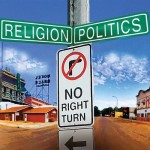Apostles or Elders?
Andy at “aBowden Blog” wrote a very good article called “Brothers, We Are Not Apostles.”
In the post, Andy examines a common, modern (and perhaps even old) hermeneutic: assigning functions and characteristics of apostles in Scripture to elders/pastors today?
Is this is a valid way to interpret Scripture?
Andy writes:
Perhaps, then, we are wrong in assuming Apostolic functions are transferred to pastors and elders. What would happen if, when reading of the appointing of servants to wait on tables in Acts 6, we assumed that role was passed to pastor/elders. Bartlett writes, “It may also be that the responsibilities assigned to the seven in Acts 6 here have passed on to the elders as well†(Bartlett, Ministry, 133). And Tidball concludes, “There seems great wisdom in the growing consensus that rather than occupying an office, elders were simply those older men [hence the word “elder”] in the congregation who were respected and recognized for their experience and wisdom†(Tidball, 94).
So, Andy thinks there is a difference between apostles and elders/pastors. I agree. What do you think?
Embracing an idea
Ed Stetzer recently published a post called “You Can’t Love a City if You Don’t Know a City, Pt 1.”
While the post is primarily about the importance of research (you know, he does research), that’s not really what I want to talk about.
Instead, I want to talk about something he brings up in his first paragraph:
“The city” is an emerging phrase that seems to be embraced by a growing number of Christians. I intentionally say they are embracing the phrase, because I do not think that all are actually embracing the city, but rather they are embracing the idea of embracing the city.
I’ve seen people “embracing the idea” in several aspects of our walk with Christ. Some areas include loving people, caring for those in need, sharing the gospel, making disciples… the list could go on and on.
There are many, many Christians who love the “idea” of these things, but I’m not sure they have actually embraced loving, caring, sharing, or discipling.
What do you think? Is it possible to embrace the idea of something without embracing that thing itself? If so, how do we tell if we (or others) are actually embracing life with Christ, and not just the idea of life with Christ? What do we do if we’re only embracing the idea?
Isn’t life ministry?
The title of this post comes from an email that Wayne from “Lifestream Blog” posted in his article “The Myth of Full-Time Ministry.”
In the post, Wayne publishes an email that he received from a man who is planning to leave his position as a full-time missionary to Russia in which he was supported by a mission board. Why? To be a full-time missionary.
Doesn’t make sense? Well, maybe this snippet will help:
My wife and I will continue to visit Russia, but as business people, not missionaries. We are now setting up a business there, as an extension of our U.S. coaching business. This group of life and business coaches I work with want to help believers in very corrupt societies, like Russia, become coaches to help develop the character and even spiritual lives of business people there, but doing it through legitimate businesses, not fronts for ministry. After all, isn’t life ministry?
You see, the man is beginning to work as an executive coach, “helping people with their goals, character, relationships and balance in life.” He’s beginning to see how his “business” can be used by God. Thus, he plans to continue working as a full-time missionary in his business.
Yes, life is ministry, if we choose to live it for others instead of for ourselves. And, I believe, most Christians would find that God can and will use your “secular” business to build his kingdom… if you allow him to.
You see, “full-time ministry” is not a myth. The myth is that God only calls some of his children to full-time ministry.
Following Christ and Politics
In a previous post (“Opportunities for the church in Maine“), I mentioned that Dan from “The Ekklesia in Southern Maine” is now writing for Examiner.com as the Portland, ME Religion and Politics Examiner. I joked, “More power to him… I try to stay out of politics and religion as much as possible…”
But, now, Dan has done us all a great service by writing a post called “Christians and Politics: It’s Complicated.”
In the post, Dan explains his approach to dealing with politics and political matters as a follower of Jesus Christ. Here is one paragraph:
Let me first state that it is a difficult topic to come to firm beliefs on, as many of the subjects are that we so heatedly debate. I guess if they weren’t difficult to find clear answers to then there wouldn’t be much room for debate. I find it difficult to have any real firm beliefs on Christian responsibility within government because, quite frankly, the concept is completely foreign to the New Testament. Christians did not participate in government. Rome ruled Israel and most of the known world during the time the New Testament was written and they certainly weren’t participating in any form of democracy. Jesus tells his followers to “render unto Caesar what Caesar is due.†Paul states that the government is appointed by God and should be obeyed. We see that the New Testament believers took it upon themselves to care for those in need, both long term as in the case with widows and orphans, and short term as in the case with the famine in Jerusalem, as opposed to requesting aid form the government. There simply is no connection between the oppressive dictatorship of the Caesar in Rome, and the liberties and dependencies which Americans, and Westernized nations in general, have in their governments.
I appreciate Dan’s article very much. I agree that this is a difficult and complicated issue.
What do you think about Christianity and politics?
Pastor / Church Codependency
Chris at “The Amplified Life” (Isn’t that a great blog title?) has written a very good article called “Neil Cole on Dysfunctional Leadership.”
He quotes from Cole’s book Organic Leadership, and the quote is very good.
But, I also appreciate Chris’ comments on the quote. Chris writes:
According to Cole leaders have enabled this and now we wonder how we got here. We can blame the culture, and many leaders often do because that’s the easy thing to do, but according to this assessment the fault lies with how church leaders have been leading the church. We have fostered a codependent relationship and we struggle to break free from what we have fostered. I think this may account for what I brought up in another post about the role of the pastor today. Pastors have essentially taken on roles that were meant for other Christians but our codependent leadership dynamic has allowed this to happen, then we wonder why thousands of pastors leave the ministry each year.
I agree. There is a codependence problem between many churches and church leaders today. Interestingly, believers do need one another, and they should be able to rely on one another, but this is not what Chris (and Neil Cole) are talking about.
I think it will take both church leaders and churches working together to break this cycle of codependence. The problem is, I’m not sure many want to break their codependent relationship, because they think it’s perfectly fine and even scriptural.
What do you think? What will it take for churches and pastors/leaders to break the codependency that Chris wrote about? Should they?
Opportunities for the church in Maine
Dan from “The Ekklesia in Southern Maine” is now writing for Examiner.com as the Portland, ME Religion and Politics Examiner. (More power to him… I try to stay out of politics and religion as much as possible…) He’s recently written a very good article called “LePage’s budget cuts to refugee welfare open opportunity for the Gospel.”
Dan explains the the governor of Maine is planning to cut welfare support for legal immigrants out of the budget. I love Dan’s response! Instead of calling the government to care for legal immigrants, Dan says the church should step up and care for these refugees and strangers/aliens (that’s what Scripture calls them).
Dan says:
If funding was cut and The Church took on this responsibility and Maine continued to be a welcoming place to refugees what would that say about Christ? What would that say about Christianity? It would speak volumes. It would show in action, not just words, that Christianity is about love, Christ’s love demonstrated at the cross, and his followers love for their God and their neighbors. It may lead to refugees finding hope beyond physical sustenance and safety; they may find eternal hope in the Gospel.
Yes! Great article, Dan! Unfortunately, I’ve found that the church tends to ignore or complain about issues like this.
I’m praying the church in Maine will step up and show the love of Christ to those that the government is refusing to help.
Arthur and Bob
Arthur at “The Voice of One Crying Out in Suburbia” has a problem. You see, in his latest post “Be Like Bob,” Arthur describes a church leader named Bob who helps a church begin serve God and serve others for themselves.
According to Arthur, the church begins to take part in living the gospel (that’s what it is, by the way), that soon Bob doesn’t do everything anymore, and he can work and support his family and others without needing monetary support from the church.
So, what is Arthur’s problem? He wants to follow a guy like Bob, but he doesn’t find many “Bob’s” in the church today. (By the way, I like following people like Bob.)
Here is how Arthur describes Bob and his work among the church:
After a year or two [of Bob equipping and training others to serve], perhaps 4 or 5 of the men of the church have advanced in maturity and are regularly ministering to the needs of the believers in this local church. The church recognizes these men as elders and they begin to shoulder an increasing load of the ministry in the church, again both to “members†and to the community in addition to their secular jobs. As the newly recognized elders help to minister and equip in the local congregation, Bob has more time freed up and is able to work his regular job on a full-time basis. Bob no longer accepts a regular salary from the church. The $400 the church had been paying Bob while he was laboring in ministering and equipping is now freed up so the local church decides to donate all of this to local and global ministries engaged in spreading the Gospel and works of mercy. Bob spends more time at his “regular†job and thus more time among unbelievers than in his office at the church.
Read Arthur’s post… compare it to what you find in Scripture. (I can find Bob in Scripture.) Compare it to what you find in the church today.
Where are all the Bob’s?
Share his sufferings
In Philippians, Paul said that he would give up everything that he might know Christ and his power, and so that he might “share in his sufferings.”
I’ve never personally faced the kind of suffering and persecution that Jesus and Paul faced.
But, there are believers – brothers and sisters – around the world who are suffering now because of their faith in Christ.
Dave Black describes how he is learning to share in their sufferings (Sunday, February 13, 2011 at 6:37 p.m.):
Recently the devil attacked my church in Bethel Hill, North Carolina. He used an Islamic radical to do so, and the attack was devastating. You did not know there were radical Islamists living in Bethel Hill, NC, did you? Actually, there aren’t any — as far as I know. But when Satan recently attacked one of our Christian brothers in Burji, Ethiopia, it was also an attack on Bethel Hill Baptist Church in the state of North Carolina. How many times do we refer to the persecution taking place “over there”? Yet there is only one Body of Christ. Suddenly I see persecution in a whole new light. When one part of the Body suffers, the entire Body suffers. As never before, we need to be willing to suffer with the persecuted church wherever that persecution might be happening at the moment. It is through co-suffering that we catch a glimpse of the catholicity of the church — one church throughout the world, in which our own local congregation has the privilege to a be a small part.
“All who want to live godly lives in union with Christ Jesus will suffer persecution,” says 2 Tim. 3:12. How dare we think we have a right to be an exception here in North America! It is only because of our faulty ecclesiology that we do not suffer when those in other nations do.
I do not personally know those brothers and sister in Burji, Ethiopia who are suffering (although I did meet one of them briefly).
However, I do personally know brothers and sisters in Alaba, Ethiopia who are suffering and who are being persecuted for their faith in Jesus Christ. They’ve had stones throne at them, and they’ve been chased through the city.
If they are being persecuted, then I am being persecuted. Will you join me in sharing in their persecution and suffering?
They must be angry, right?
Eric from “A Pilgrim’s Progress” has written another excellent article called “It’s Not Because of Bad Church Experiences.”
For those of you who don’t remember, Eric recently left “the pastorate.” He had been a vocational pastor, but stopped a few months ago.
Why did he stop? Why is he now pursing a more simple, organic form of church life?
Well, he must be angry, right? He must have had some bad experiences? The people at his last church treated him poorly, right?
Well, no.
Here is part of what Eric says:
I obviously cannot speak for all those who have departed from the traditional church for a simpler, organic model of church life.  However, I can tell you that our family most emphatically did not leave because of “bad church experiences.”  In our lives Alice and I have been a part of several solid, evangelical, traditional churches.  We’ve had a few negative church experiences here and there, but who hasn’t?  Overall, we were pleased with and didn’t give much thought to the traditional model until a few years ago.
I’ve written at length about why we made the decision to leave the traditional church; I won’t bring all that back up again here.  Let me simply say that we did not leave because of bad experiences.  Rather, we left because of the bible.
My understanding of the church has changed over the last few years also, and like Eric, bad experiences were not the cause. Instead, as I studied Scripture, I saw a disconnect between what was modeled and taught in Scripture and what we call the church today.
Has your understanding of the church changed? Why?
It’s called ‘Status quo’ for a reason…
Joel at “The Double Edged Sword” has written a post that has made me stop and think… seriously. The post is called “If I…” Short name… but big post.
He begins by noting that if he stood against the common enemies of American evangelicalism, then he would be heralded a hero.
But, what if he stood against some of the problems without American Christianity in general and evangelicalism in particular?
Joel writes:
But…. if I were to confront the denominational teachings and doctrines of men and challenge Believers to examine how their religious ways just might be in direct opposition to God’s Word, I’m deemed a prideful and arrogant heretic that needs to just shut his mouth.
I find this mysterious fact to be quite interesting. The religious roots of American Christianity run deep my friends. If we’re too close-minded to even ask if we might have some things wrong as Believers (even if it’s our religious Christian/American heritage), we’re treading on dangerous ground. Who will hear what the Spirit is saying to The Church in this hour?
This is a very good question. And, it caused me to wonder… how would I (who do I) react when someone questions my own “Status quo”?
I asked Joel something to that effect in the comments, and I think he gave an excellent answer.
What do you think?










